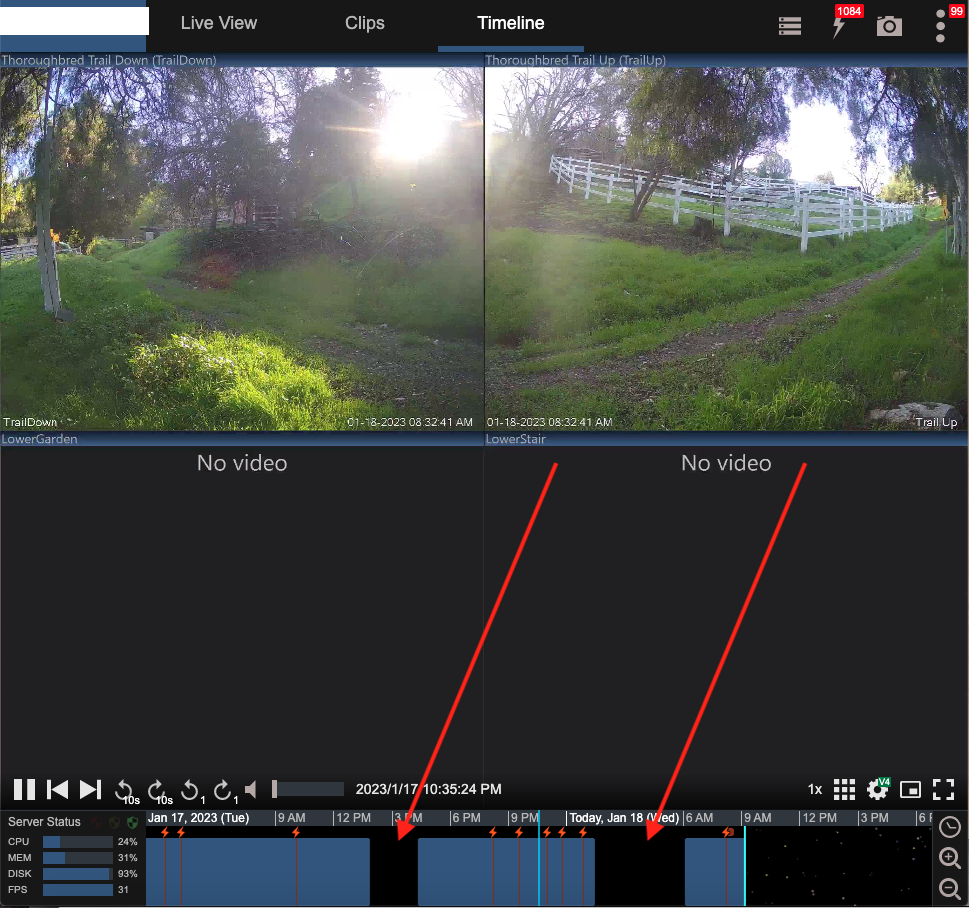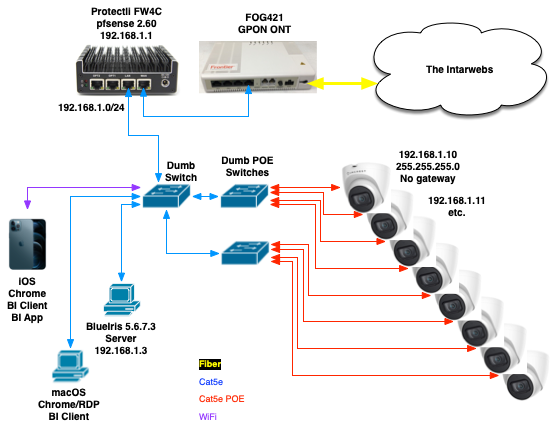I have an issue with my router where it shuts itself down about 1x/day. This is annoying, but it's covered under warranty, and I'll have a replacement in place in a couple of days..
Meantime, I'm seeing an unexpected side effect where, if the router is down, BI doesn't record. You can see gaps in the recording during the times when the router was down:

It's the same for all cameras. When I RDP into the BI server and look at BlueIris.exe console, I also see no video when I skip back to those time periods.
I don't understand why BI stops recording when my router is down, because my network is entirely flat, and the BI-to-camera links are LAN only. In fact the DHCP reservations for the cameras don't even give them a default gateway:

If I restart the router (but I don't touch the BI server), then the recording starts up again.
Is this by design? I would think not. Or maybe I have something configured wrong.
All cameras get their addresses via DHCP from the pfsense router, but if the router goes down those address should persist for a few hours.
All cameras are configured in BI by their IP addresses.
Anything else I should look at?
Meantime, I'm seeing an unexpected side effect where, if the router is down, BI doesn't record. You can see gaps in the recording during the times when the router was down:

It's the same for all cameras. When I RDP into the BI server and look at BlueIris.exe console, I also see no video when I skip back to those time periods.
I don't understand why BI stops recording when my router is down, because my network is entirely flat, and the BI-to-camera links are LAN only. In fact the DHCP reservations for the cameras don't even give them a default gateway:

If I restart the router (but I don't touch the BI server), then the recording starts up again.
Is this by design? I would think not. Or maybe I have something configured wrong.
All cameras get their addresses via DHCP from the pfsense router, but if the router goes down those address should persist for a few hours.
All cameras are configured in BI by their IP addresses.
Anything else I should look at?
